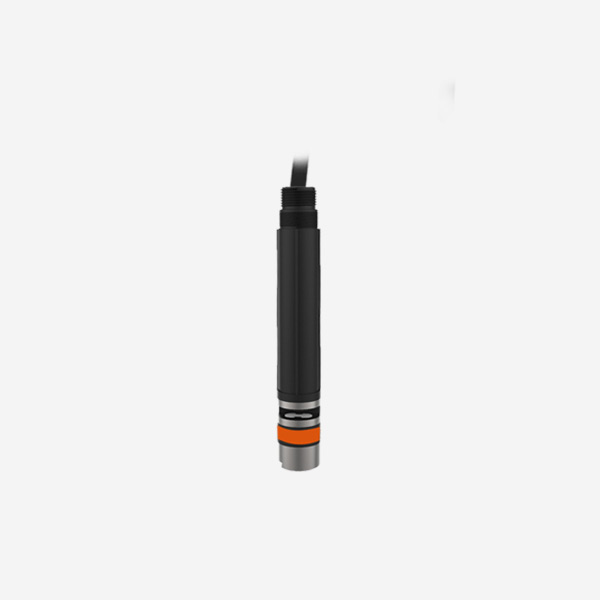Choosing the right water quality sensor is crucial for effectively monitoring and managing the condition of water in various environments. The selection of a water quality sensor depends on the specific parameters that need to be measured, the intended application, and the environmental conditions in which the sensor will be deployed. In this essay, we will explore the factors to consider when choosing a water quality sensor, the different types of sensors available. Athe importance of selecting the right sensor for water quality monitoring.
When choosing a water quality sensor, several factors need to take into consideration to ensure that the selected sensor is suitable for the application . Different sensors are measure specific water quality parameters such as pH, temperature, dissolved oxygen, turbidity, conductivity. Therefore, we must determine the parameters relevant to the monitoring objectives.
The intended application of the water quality sensor is another important factor to consider. Applications for water quality sensors include monitoring drinking water sources, industrial wastewater, natural water bodies and aquaculture systems. The requirements of each application may vary, and the sensors we choose should meet the monitoring needs of the application. For example, sensors that monitor drinking water must meet regulatory standards and provide accurate and reliable data.
also affect the choice of water quality sensors. Some sensors may be better suited to harsh environmental conditions. Other sensors may require additional protection to operate effectively in harsh environments. It is important to consider the environmental conditions of the sensor while maintaining accurate and reliable measurements.
Different types of water quality sensors

Types of water quality sensors available in the market offer a range of options for monitoring various parameters and applications.
pH sensor are measure the acidity or alkalinity of water, making them essential for applications where water quality is influenced by changes in pH.
Features:
(1)High-sensitivity electrode, high temperature and high pressure resistance, the probe uses high-performance PH glass electrode, high temperature and high pressure resistance, strong adaptability.
(2)Large 2.4-inch LCD screen, the value is clear at a glance, and the value is displayed in real-time high-definition.
(3)High precision and stable signal, allowing you to obtain every data at any time, with an accuracy of 0.01PH.
(4)There is a password to prevent data leakage.
(5)Multiple adaptation fields, one machine with multiple configurations, intelligent adaptation.
Temperature sensor are crucial for monitoring changes in water temperature, which can affect the behavior of aquatic organisms and the rate of chemical reactions in water. Dissolved oxygen sensors are essential for assessing the oxygen levels in water, which is critical for the survival of aquatic organisms and for understanding the dynamics of aquatic ecosystems.
Turbidity sensor measure the cloudiness or haziness of water, which is an indicator of the presence of suspended particles or sediments.
Features:
(1) Temperature compensation, stainless steel temperature probe, bare design temperature measurement is more sensitive, through temperature measurement and calculation to reduce temperature interference on the measurement results.
(2) Square wave signal, transmit a square wave signal, and reduce the interference of light of the same wavelength in sunlight to the received signal by processing the signal.
(3) Multiple measurements can detect water turbidity suspended solids/sludge concentration.
(4) 860nm wavelength infrared light source/filter, using filter, only allows specific wavelength light to pass through to reduce the interference of other wavelength ambient light on the sensor.
Conductivity sensor measure the ability of water to conduct electrical current, which is related to the concentration of dissolved ions and can indicate the presence of pollutants or changes in water composition.
The selection of the right water quality sensor depends on the specific monitoring needs and objectives of the application. In a drinking water treatment plant, a combination of sensors such as pH, turbidity, and chlorine sensors ensure that the water meets regulatory standards. In industrial wastewater monitoring, sensors for measuring parameters such as chemical oxygen demand (COD), biochemical oxygen demand (BOD), and specific pollutants may be necessary to comply with environmental regulations and to control the quality of wastewater discharge.
Features:
(1)High-sensitivity electrode, high temperature and high pressure resistance, the probe uses high-performance PH glass electrode, high temperature and high pressure resistance, strong adaptability, long life, simple maintenance.
(2)Large 2.4-inch LCD screen, the value is clear at a glance, and the value is in real-time high-definition.
(3)High precision and stable signal, allowing you to obtain every data at any time, with an accuracy of 0.01PH.
(4)There is a password to prevent data leakage.
(5)Multiple adaptation fields, one machine with multiple configurations, intelligent adaptation.
(6)Intelligent temperature compensation design, intelligent temperature compensation, one-key adjustable, suitable for a variety of measurement occasions, intelligent temperature compensation, manual or automatic, -20℃-80℃.
The development of advanced water quality sensors has led to more accurate, reliable, and cost-effective monitoring solutions, offering a wide range of options for different applications. Modern water quality sensors often incorporate advanced technologies such as electrochemical sensors, optical sensors, and microfluidic systems, which enable high-precision measurements and real-time data transmission. These technological advancements have significantly improved the performance and usability of water quality sensors, making them indispensable tools for water quality monitoring and management.
If you have any questions or concerns, please feel free to leave us a message or Email us Email: jxiotdz@gmail.com.
